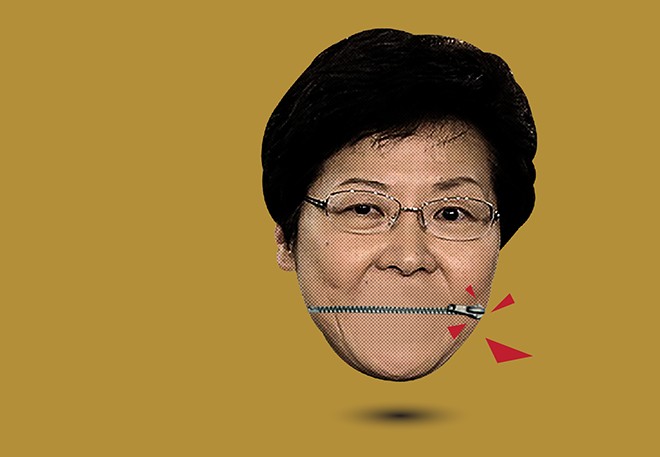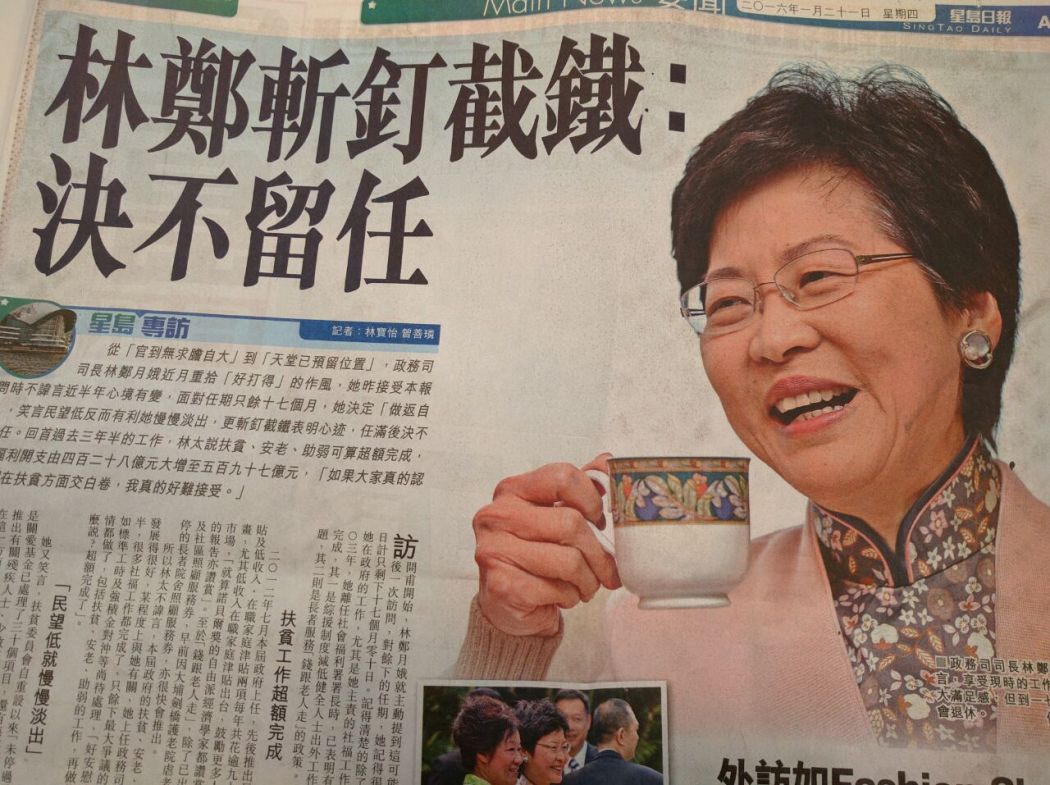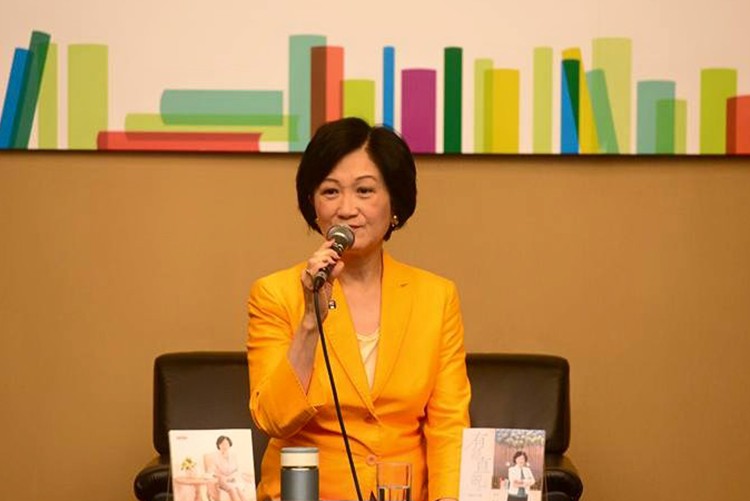Chief Secretary Carrie Lam Yuet-ngor is throwing in the towel on a mostly stellar 37-year career as a civil servant—and who can blame her?
Everything was going brilliantly for one of the most articulate, intelligent and personable ministers ever to serve the Hong Kong government. Then she met Leung Chun-ying, and her career—for so long an ever-rising trajectory of ministerial appointments and accomplishments— turned into a sinking ship of ill-advised statements and unpopular positions.

For Lam, 58, it’s time to abandon that ship. She has announced that she will be retiring at the end of her term next year and has no interest in pursuing higher office.
No doubt ardent opponents of the Leung administration will be cheering and jeering as she exits.
But these critics should not allow their antagonism toward the chief executive to obscure the fact that Lam, whose approval ratings have plunged during her stint as Leung’s No. 2, was once the most popular politician in Hong Kong and, for many, the city’s best hope for a future chief executive who would actually stand up for the interests of the 7.2 million people who live here, while also maintaining good relations with the powers-that-be in Beijing.

Moreover, it was clear that Lam herself had an eye trained on Hong Kong’s top job. After all, she had witnessed her two predecessors as chief secretary— Donald Tsang Yam-kuen and Henry Tang Ying-yen—reach for the prize, with Tsang moving into Government House following Tung Chee-hwa’s 2005 resignation for “health reasons” and then winning the CE election outright in 2007.
Tang, a Beijing favourite, also appeared a shoo-in for the office in the run-up to the 2012 election but was undone by the scandal of the luxurious 2,200-square-foot basement illegally built under his Kowloon Tong residence.
Leung, ever the opportunist, took advantage of Tang’s plight to leapfrog him into the CE’s chair, winning 689—a number that has since become a contemptuous pet-name for Leung—of the 1,200 Election Committee votes.
At the time, Lam was Secretary for Development and the most popular and effective member of the Tsang administration. She then decided to hitch her ambition to the incoming Leung team, accepting the position of chief secretary but assuredly also seeing herself as a possible CE down the road.
But that dream was soon shattered as Leung, exploiting her favoured standing among ordinary people, quickly turned Lam into the point-person for every unpopular measure he trotted out.

Soon the new chief secretary found herself breaking into tears during a televised interview, struggling to fend off attacks on her integrity and credibility in the wake of her defence of Leung’s controversial proposal, since shelved, for a national education curriculum to make Hong Kong students more patriotic toward the mainland.
And, of course, we all remember Lam’s humiliation in October of 2014 when—rhetorically crippled by a government party-line to which she was obliged to adhere—she was badly outpointed by a group of T-shirt-clad students during a two-hour televised debate at the height of Occupy Central.
More recently, she has learned to hold back her tears and step up her rhetoric while tirelessly promoting the government’s sham two-option retirement scheme and the copyright bill that is presently bogged down by filibusters in the Legislative Council.
In return for all her efforts and displays of loyalty, Lam has seen her approval ratings join those of her boss at the very bottom of the table.
So it’s no surprise that, battered and disillusioned, she now wants out.
In an interview published on Thursday in Singtao Daily, Lam said: “It is time to retire. This is also my promise to my husband.”
Let’s take her at her conjugal word, but it is certainly curious that she refused to be drawn when asked whether she would support what looks increasingly likely to be a Leung re-election campaign.

Unlike another of her predecessors as chief secretary—Anson Chan Fang On-sang, who served unhappily for four years of the Tung administration before resigning in 2001—Lam promised that she would not throw brickbats from the sidelines once she leaves the civil service.
“I will not talk about these things,” she said.
That is an admirable and welcome stance. That Lam refused to give Leung any form of endorsement even before she leaves the government, however, suggests that her relationship with her boss is less than ideal.
For three and a half years, this chief secretary has been called on for enthusiastic support of every bad idea Leung has promoted and, consequently, lost her credibility with the people of Hong Kong. No wonder she could not bring herself to go one step further and give her backing to his probable bid for re-election to an office she once coveted but now must realise is a poisoned chalice.

With Lam declaring herself officially off the list of potential CE candidates for 2017, Leung is left to face down uninspiring rivals such as Regina Ip Lau Suk-yee and Antony Leung Kam-chung, two proven flunkies from the Tung administration, as well as John Tsang Chun-wah, the current finance chief who has been quoted as saying that a penchant for coffee and French movies are entryways to the middle class and whose budgets are so consistently miscalculated as to create massive annual surpluses that amount to an embarrassment of riches in a city where nearly 20 percent of the population is poor.
Being Hong Kong’s No. 2 has been a thankless, joyless task that has left the once-smiling, ebullient Lam often looking stone-faced and drained of energy and optimism. Among the best and brightest of her generation, in the end she was nevertheless thwarted by a dysfunctional political system that has produced a bitter climate of division in which no one wins.
She deserves a better fate.
